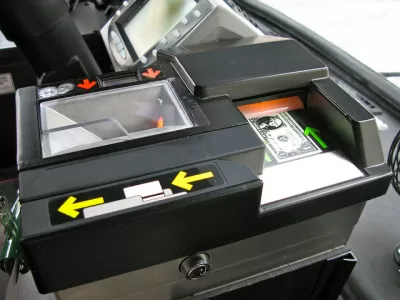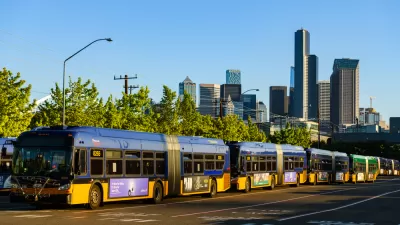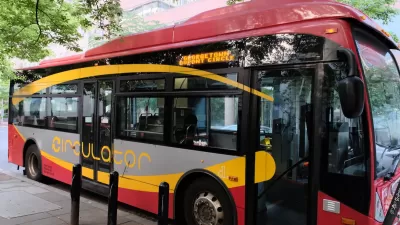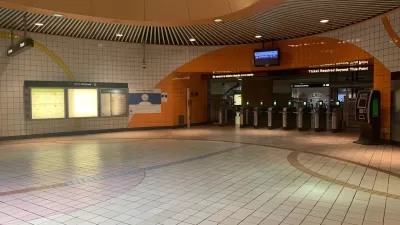The District may soon remove criminal penalties from fare evasion with a proposal that would lower fines and strike the possibility of jail time.

In the past year, officials in New York, Washington state, and California have relaxed the consequences to fare evasion, or decriminalized it altogether; in Cleveland, enforcement duties were recently transferred from police to civilian inspectors. In light of another decriminalization proposal in D.C., the Washington Post's Martine Powers looks into why some lawmakers are backing down from the broken windows approach to transit fares.
"Targeted enforcement campaigns are bound to ensnare poor and low-income people who don’t have the money to pay their fares — let alone fines," Powers explains. Cracking down on a crime of poverty through steep fines—or with police encounters, a major predictor of police killings—is not only inequitable, lawmakers argue, but also impractical: The resources needed to prosecute the minor offense are less likely to be recouped, while taking no action has yet to yield negative consequences.
FULL STORY: Here’s why some lawmakers are pushing back against fare evasion crackdowns

Planetizen Federal Action Tracker
A weekly monitor of how Trump’s orders and actions are impacting planners and planning in America.

Restaurant Patios Were a Pandemic Win — Why Were They so Hard to Keep?
Social distancing requirements and changes in travel patterns prompted cities to pilot new uses for street and sidewalk space. Then it got complicated.

Maui's Vacation Rental Debate Turns Ugly
Verbal attacks, misinformation campaigns and fistfights plague a high-stakes debate to convert thousands of vacation rentals into long-term housing.

In California Battle of Housing vs. Environment, Housing Just Won
A new state law significantly limits the power of CEQA, an environmental review law that served as a powerful tool for blocking new development.

Boulder Eliminates Parking Minimums Citywide
Officials estimate the cost of building a single underground parking space at up to $100,000.

Orange County, Florida Adopts Largest US “Sprawl Repair” Code
The ‘Orange Code’ seeks to rectify decades of sprawl-inducing, car-oriented development.
Urban Design for Planners 1: Software Tools
This six-course series explores essential urban design concepts using open source software and equips planners with the tools they need to participate fully in the urban design process.
Planning for Universal Design
Learn the tools for implementing Universal Design in planning regulations.
Heyer Gruel & Associates PA
JM Goldson LLC
Custer County Colorado
City of Camden Redevelopment Agency
City of Astoria
Transportation Research & Education Center (TREC) at Portland State University
Camden Redevelopment Agency
City of Claremont
Municipality of Princeton (NJ)





























